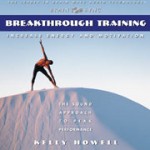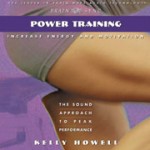
What is the key to an irresistible workout and a better body? It’s all in your mind. If you think what is holding you back is your energy, your flexibility or your endurance, think again. Your mind can transform your workout and your body. People who work out and competitive athletes have used sports psychology to break through barriers, reach goals and forge a new image of themselves. Research supports the impact of the mind on performance.
Breaking through mental barriers to new possibilities is important. It is the way we make our workouts compelling. The desire to realize our potential keeps us coming back for more. Research shows that mindfulness, goal setting, imagery, self-talk, and routines and rituals can enhance motivation, energy, commitment and performance. These approaches work for world class athletes and former couch potatoes, too.
Mindfulness
Coaches and athletes are harnessing mindfulness to obliterate doubts and negativity, to enhance confidence and to enter the zone, the exhilarating state of flow where obstacles melt, time recedes and we are one with our endeavors. Mindfulness-Acceptance-Commitment (MAC) in sports emphasizes nonjudgmental acceptance of present realities and intense attention, which is linked with optimal performance. Acceptance and attention can transform us.
MAC grew out of Acceptance and Commitment Therapy (ACT). ACT reveals that mindfulness skills harness three processes:
- Defusion: distancing from, and letting go of, unhelpful thoughts, beliefs and memories
- Acceptance: making room for painful feelings, urges and sensations, and allowing them to come and go without a struggle
- Concentration on present moment: engaging fully with your here-and-now experience, with an attitude of openness and curiosity
Goal Setting
Goal Setting focuses us on our aspirations and translates them into achievement. Research suggests that goals should be specific and challenging, yet attainable. It helps to write down goals and attach a deadline to them. A meta-analysis of goal setting in sport confirms that it works. According to Dr. Eva V. Monsma, short term goals can be used to support your long term workout goals. She advises focusing on what you want rather than things you want to ditch.
Self-Talk
Self-talk – the thoughts we say to ourselves in our minds – can be cues to focus and improve. A softball player may think release point when at bat to direct her attention to the point when the pitcher releases the ball, a golfer may say smooth stroke before putting, to stay relaxed.
Researchers made distinctions between motivational talk, in which participants would tell themselves Let’s go! or I can do it! as opposed to instructional self talk. It is more effective to zero in on a specific task like Focus, Raise my elbow or Follow through. Goal setting and self-talk can help by enhancing focus, increasing confidence, regulating effort, controlling mental and emotional reactions, and triggering effortless, automatic action.
Imagery
Vivid images can be interpreted by the brain as identical to reality. So visualizing speed, endurance and breaking through barriers can work for you. Create as lifelike an image as you can, using all your senses – sight, smell, kinesthetic. This is a strategy used by coaches and athletes the day before an event.
Routines and Rituals
Pre-performance routines and rituals trigger concentration, decrease anxiety and strengthen focus. They may include eating a favorite food before an event, putting clothes on in a certain order, warming up in a certain way, taking deep breaths, listening to music, and using words and phrases that psych you up. Good luck charms work, too!
Workouts can confront us with fears of failure. They test our confidence as well as our bodies. And they also challenge our minds. So when you think about your next workout and you are tempted to have ice cream instead, try these mental strategies to get you back in the game. Your body and mind will be happier!
 Breakthrough Training in the Zone, Vol. 1
Breakthrough Training in the Zone, Vol. 1
- Burn Fat
- Increase energy and motivation
- Boost Beta-Endorphin production
- Look forward to exercise
 Power Training in the Zone, Vol. 2
Power Training in the Zone, Vol. 2
- Burn more calories and fat
- Increase energy and vitality
- Enjoy workouts and push your limits
OCT
